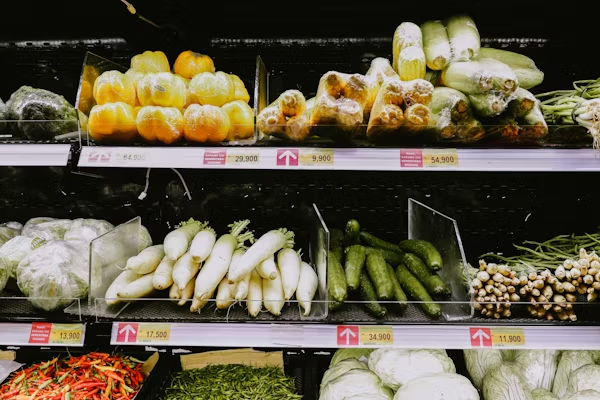Food prices rose again in August, marking the fifth consecutive monthly increase. Official data shows the fastest growth since early last year.
The cost of food and non-alcoholic drinks increased 5.1% over the year. Beef, butter, milk and chocolate saw the largest rises.
Slower growth in other areas, including air fares, kept overall inflation steady at 3.8%, the same as July.
Economists said supermarkets are passing higher minimum wage and National Insurance costs directly to shoppers.
Bank of England expected to hold rates
Inflation remains above the Bank of England’s 2% target. Analysts widely predict no change in interest rates this week.
Chancellor Rachel Reeves acknowledged families are struggling. She pledged to reduce costs and support households facing rising bills.
Her first Budget increased the minimum wage and employer National Insurance Contributions. Businesses warned these moves would push prices higher.
Reeves promised no new borrowing or tax increases, though speculation about November’s Budget continues.
Shadow chancellor Sir Mel Stride called the figures “deeply worrying” and said Labour’s policies are fuelling inflation.
UK inflation outpaces Europe
The Office for National Statistics reported the fastest rise in food and drink prices in 19 months.
It said UK inflation remains far above other European economies. France recorded 0.8% in August, while Germany posted 2.1%.
Yael Selfin, chief economist at KPMG, said Britain has become an “outlier” compared with other major economies.
She added higher employer National Insurance Contributions increased business costs, which were then passed on to consumers.
Essentials drive household costs higher
Beef and veal prices rose nearly 25% in the year to August. Butter climbed almost 19%, while chocolate jumped 15.4%.
The British Retail Consortium warned food inflation is outpacing wage growth, which reached 4.7% between May and July.
Director Kris Hamer said families are struggling as pay fails to keep pace. Clothing and footwear prices eased as retailers cleared summer stock.
Staples such as cereals and pasta also fell slightly in August.
Interest rate cuts remain uncertain
ING economist James Smith said inflation stuck at 3.8% complicates the Bank of England’s decisions.
He warned food inflation could rise further before year-end. The Bank has already cut rates five times since last August, reducing borrowing costs to 4%.
Officials expect inflation to peak at 4% in September. Analysts widely predict no change in rates this week.
Capital Economics doubts a November rate cut. But economist Paul Dales expects weaker wage growth to bring UK inflation closer to US and eurozone levels.
He forecast rates will fall from 4% to 3% by late next year.
Small businesses bear rising costs
Tom Egan, who runs Coosh Bakery in Nottingham with his wife, said rising butter and chocolate prices are hitting hard.
Poor cocoa harvests doubled supplier costs. A 10kg batch once costing £60 now exceeds £150.
Butter prices have surged 50% in a year as milk imports fell. Lower supply has pushed costs higher.
Egan said higher National Insurance Contributions have also “stung”. His bakery has postponed investment in equipment and technology that could boost productivity.


